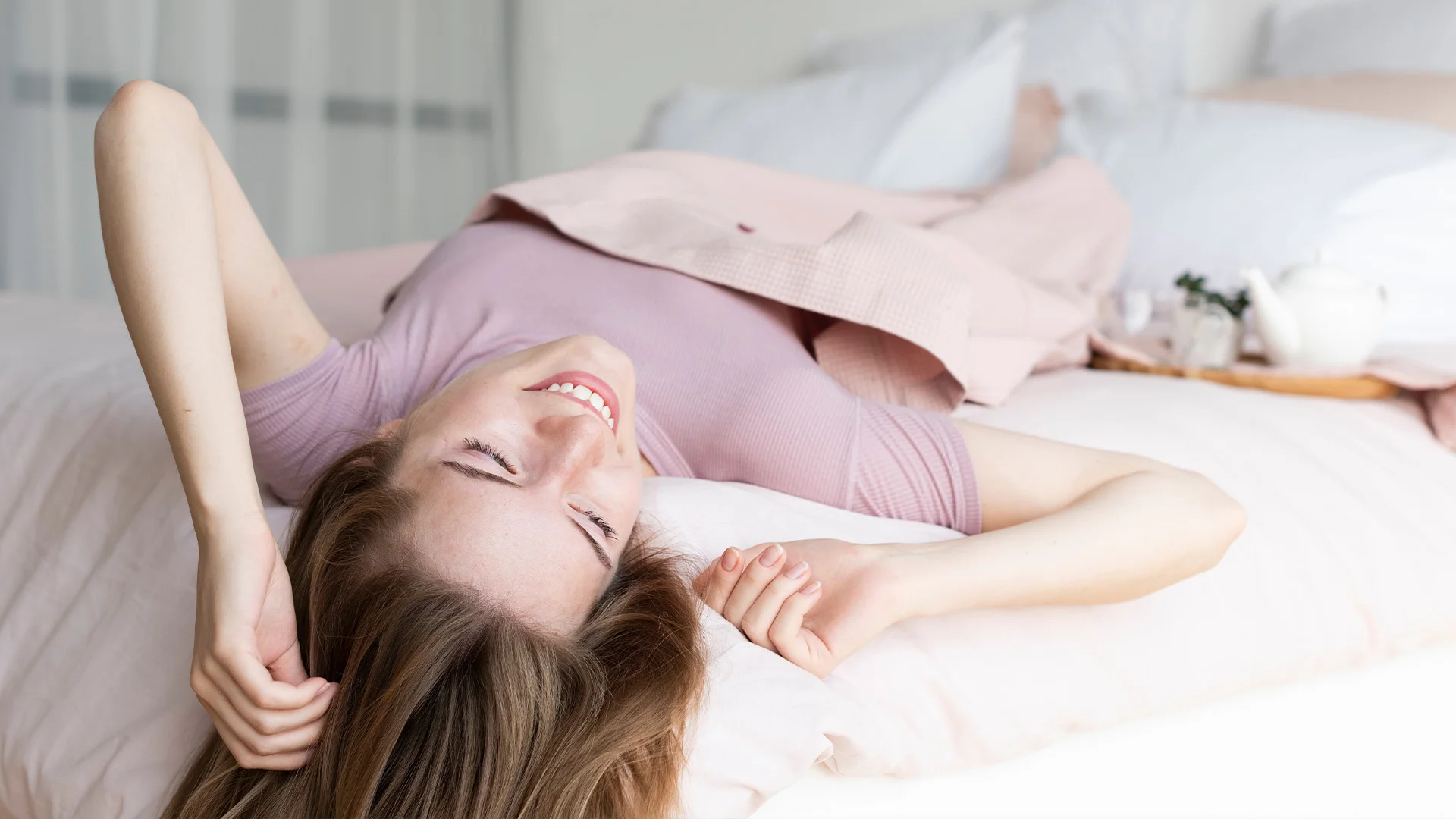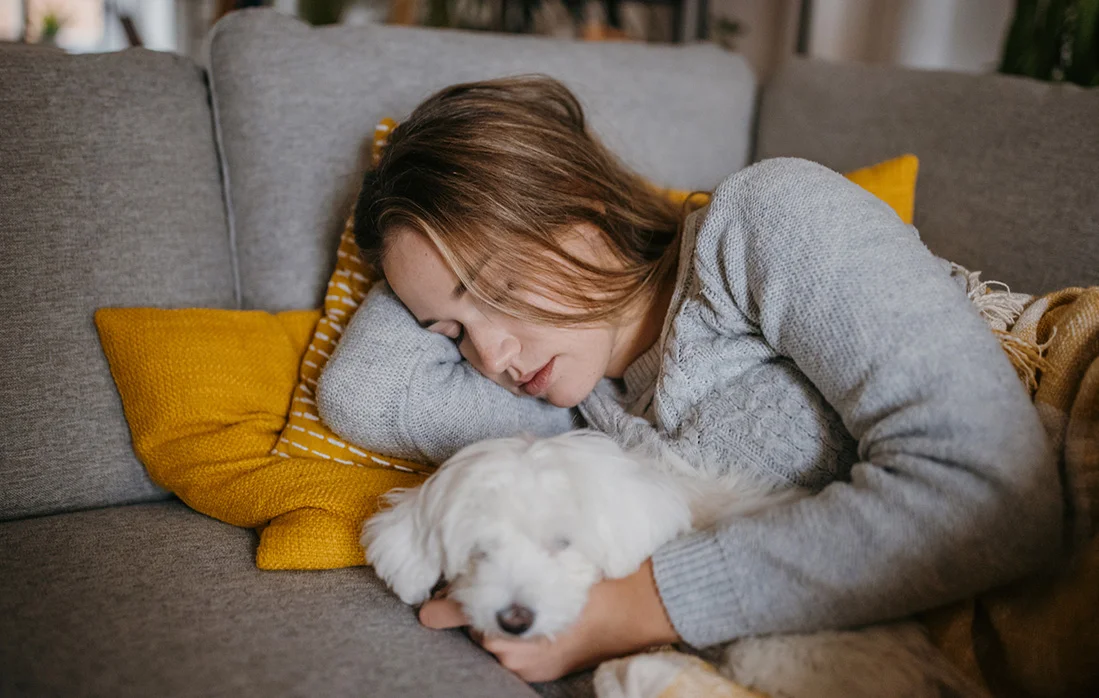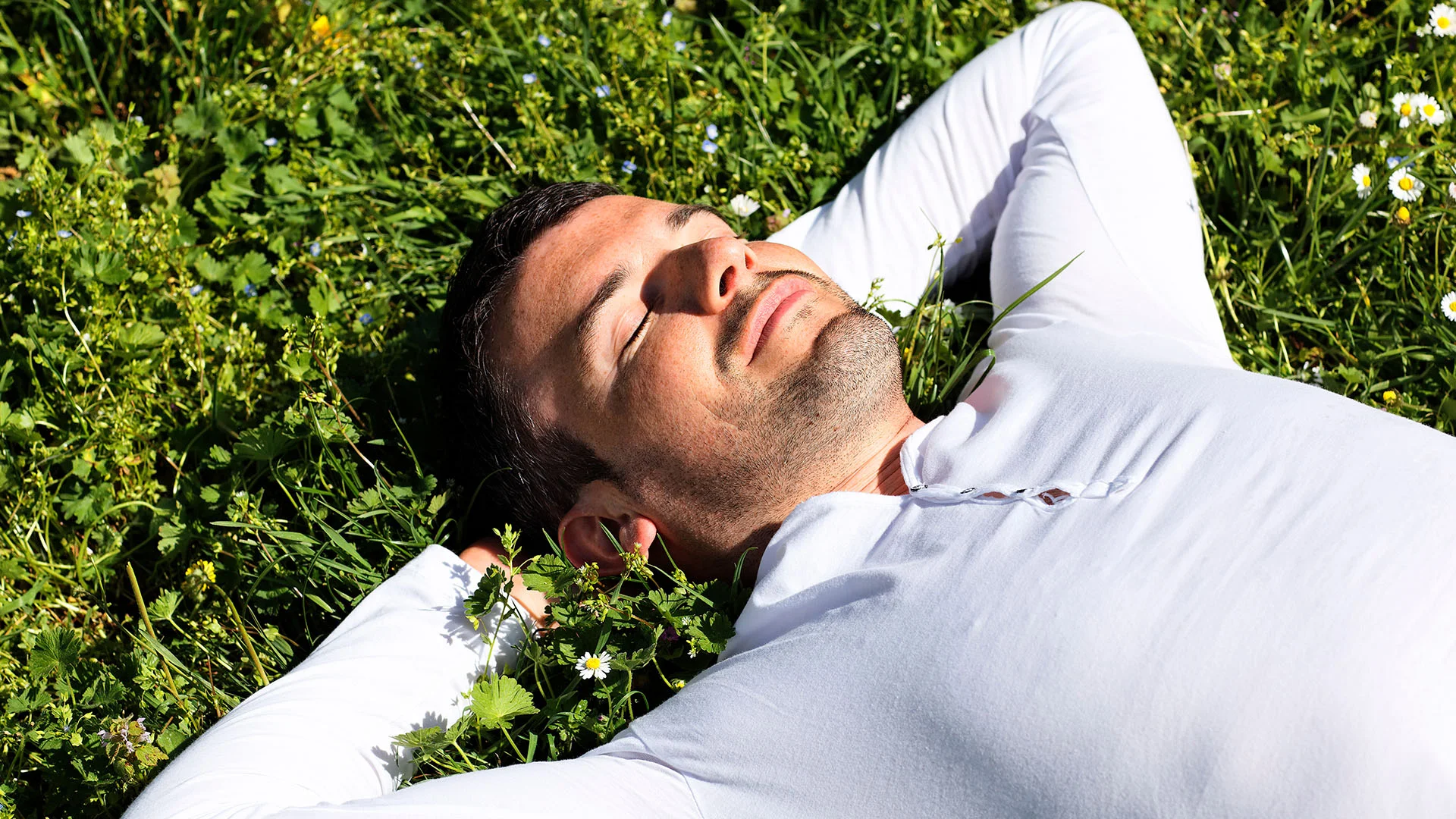
Sleep is a vital piece of the puzzle that makes up a well-functioning, energized, and sharp mind and body, but it can also be one of the most elusive. Approximately 50 – 70 million American adults have chronic sleep disorders, with several more million struggling to fall and stay asleep for the recommended minimum of 7 hours each night. It’s likely no surprise that remedies, techniques, and devices to improve sleep are massively popular.
One of the latest sleep “hacks” comes from a group of TikTok sleep hypnosis videos that claim to put you into a deep sleep in minutes. One video with over 21 million views even warns that you will become hypnotized and should be in a safe place sitting down. While hypnosis has been extensively researched, the science is mixed.
However, there are potential benefits of sleep hypnosis worth further investigation. But can you really be hypnotized through a screen? And are there, perhaps, more effective strategies for falling asleep? We spoke to Dr. Patrick Porter, a Neuroscience expert, and the creator and CEO of BrainTap.
What Is (and Isn’t) Sleep Hypnosis?
According to Porter and the current research, sleep hypnosis can be effective for some people. The practice involves being guided into a state of deep relaxation where your subconscious mind is more receptive. “Hypnotic suggestions aimed at changing behaviors, thoughts, and attitudes about sleep can help to combat insomnia and other sleep disorders,” says Porter.
Contrary to popular belief, hypnosis is not about losing control or being manipulated; it’s about training your mind to focus and relax, which does have clear benefits akin to mindfulness and meditation. However, how effective sleep hypnosis will be depends on the individual, and Dr. Porter stresses that it’s not a universal solution for everyone who has trouble falling asleep.
What Types of Sleep Hypnosis Are Credible and Effective?
According to Porter, various types of sleep hypnosis can be effective, but it usually depends on the individual and their specific needs or issues. “Hypnotic techniques can include relaxation exercises, mental imagery, and suggestions for sleep; the effectiveness of each technique can vary greatly among individuals,” he says.
Professional hypnotherapists or self-hypnosis audios with guided visualization techniques are commonly used and have been for decades. But the growing popularity of social media based hypnosis videos should be used with caution and skepticism. “Hypnosis should always be used responsibly and ideally under the guidance of a trained professional,” warns Porter. Keep in mind that videos viewed online are not necessarily created or carried out by professionals. Even if creators use a hashtag suggesting they are pros, no systems are in place to validate their credentials.
Staring at a Phone Screen Can Disrupt Sleep
Staring at a phone screen, especially close to bedtime, can disrupt sleep in a small percentage of people because of the light emitted by the screen. “This light can interfere with your body’s production of melatonin, a hormone that regulates your sleep-wake cycle,” says Porter. However, he suggests using sleep hypnosis applications on your phone designed with audio only, which stop after the session ends, unlike most TikTok videos that automatically switch to another video when the previous one ends. “It’s recommended to reduce screen time for at least an hour before bedtime to promote better sleep quality,” he adds.
Hypnosis and Other Methods Can Improve Sleep
Both hypnosis and meditation can be effective tools for improving sleep, according to Porter. “They each work in different ways; while hypnosis focuses on inducing a trance-like state and making suggestions to the subconscious mind, meditation encourages relaxation, mindfulness, and a focus on the present moment,” he explains. Using a combination of these approaches can be particularly powerful.
“Using technologies that promote relaxation and a calm mind, such as BrainTap, can also greatly enhance these practices,” suggests Porter. Techniques such as sound, binaural beats, and visualization activate brainwaves conducive to deep relaxation and sleep, he says.
Ultimately, whether hypnosis, meditation, or other sleep aids are more effective will depend on the individual. Some may find more success with one method over another, or they may benefit from a combination. “It’s important to remember that good sleep hygiene overall — a regular sleep schedule, a calm sleep environment, and avoidance of caffeine and electronics before bed — is fundamental to improving sleep,” concludes Porter.

New Study Tests If It’s Possible to Learn a New Language While Asleep — Here’s What the Research Says

What Experts Say About the “Bed Rotting” Trend and Its Claims to Boost Mental Health

The Surprising New Link Between Daytime Naps and Atrial Fibrillation (Afib)

What Is “Sleep Grounding,” the New Earthy Trend on TikTok?
Sources
S. Mamoune, E. Mener, A. Chapron, J. Poimboeuf; Hypnotherapy and insomnia: A narrative review of the literature; Complementary Therapies in Medicine,
Volume 65, 2022; 102805; ISSN 0965-2299; https://doi.org/10.1016/j.ctim.2022.102805.Porter. Patrick. Author interview. June 2024.
Irina Chamine, PhD, Rachel Atchley, PhD, Barry S. Oken, MD, PhD; “Hypnosis Intervention Effects on Sleep Outcomes: A Systematic Review;” https://jcsm.aasm.org/doi/10.5664/jcsm.6952. February 15, 2018.


























